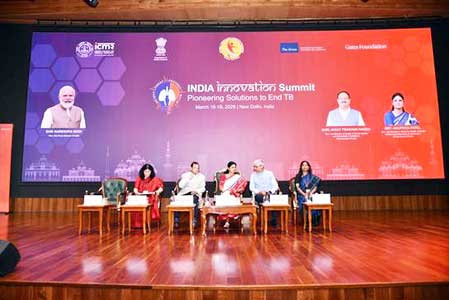Replacement heart valves that grow inside the body may be a step closer to reality.
Researchers at the Imperial College London and Harefield Hospital in the UK have developed a novel treatment that harnesses body's natural repair mechanisms to build a living heart valve.
The results are published in the journal Communications Biology.
"The aim of the concept we've developed is to produce a living valve in the body, which would be able to grow with the patient," said Dr. Yuan-Tsan Tseng, a biomaterials scientist working at the Imperial's National Heart and Lung Institute and the Harefield Heart Science Center.
Heart valve replacement is a life-saving treatment, but it is rarely a long-term solution. Both mechanical and biological valves have their own drawbacks. Patients with mechanical valves must take drugs for the rest of their lives to prevent blood clotting.
Biological valves, on the other hand, only last between 10 to 15 years. The treatment is particularly challenging for children with congenital heart defects, as the valves do not grow along with their bodies and must be replaced several times before they reach adulthood.
The new procedure begins with a nanofibrous polymeric valve, but made from a biodegradable polymer scaffold rather than a durable plastic.
"Once this is inside the body, the scaffold recruits cells and instructs their development, so that the body works as a bioreactor to grow new tissue," Dr. Tseng explained. "The scaffold gradually degrades and is replaced by our body's own tissues."
The scaffold material used to make the valve is the key innovation. "It has the capability to attract, house, and instruct appropriate cells from the patient's own body, thereby facilitating tissue generation and maintaining valve function."
The team transplanted the valve into sheep and monitored for up to six months.
"The valves performed very well," Dr. Tseng said. "They continued to function for the six months of the trial, and also showed good cellular regeneration."
In particular, the study shows that the scaffold was able to attract cells from the blood stream which then developed into functional tissues, a process known as endothelial-to-mesenchymal transformation (EndMT).
"We've also seen nerves and fatty tissues growing in the scaffold, as we might expect in a normal valve."
Meanwhile, the polymer could be seen degrading to make way for the new tissue.
"If there was no regeneration, the valve would fall apart as the polymer degrades. But what we see is continuing functionality, and that means cell regeneration is taking place over time. That proves that our idea of in-vivo regeneration is working."
More work is required to determine exactly which processes are causing the polymer to degenerate and how closely it is linked to tissue regeneration.
"But the tissue regeneration is definitely sufficient to cover the structural integrity and functionality of the valve," Dr. Tseng said.
The team aims to get regulatory approval for the first clinical trials, hopefully in the next five years or so.






DoNER Ministry facilitate in unlocking Manipur’s growth: Scindia
Union Development of North Eastern Region (DoNER) Minister Jyotiraditya Scindia on Thursday said that he is confident that his ministry would serve as a proactive facilitator in unlocking new opportunities and accelerating Manipur’s growth and development.
National Herald case: Congress protests outside ED offices in northeastern states
Congress leaders claimed that through false allegations, the Enforcement Directorate (ED) under the direction of the Central government filed a chargesheet against the party's Parliamentary Party Chairperson Sonia Gandhi and Leader of Opposition (LoP) Rahul Gandhi, among others.
Seven cops injured during anti-Waqf Act rally in Tripura
At least seven policemen sustained injuries on Saturday during a clash between the security personnel and the agitators who held a protest rally against the recently enacted Waqf (Amendment) Act in northern Tripura’s Kailashahar under Unakoti district.
68 tonne areca nuts worth Rs 5.87 cr smuggled from Myanmar seized in Manipur
After Mizoram, the Assam Rifles have seized 68 tonnes of smuggled areca nuts worth Rs 5.87 crore in Manipur’s Kangpokpi district, officials said on Friday.